Logistiikka-alan opettajat Simo Ahtiainen ja Janne Kaija vierailivat 2019 puolella Gradian yhteistyöoppilaitoksissa ROC Friese poortissa ja BBS Jeverissä.
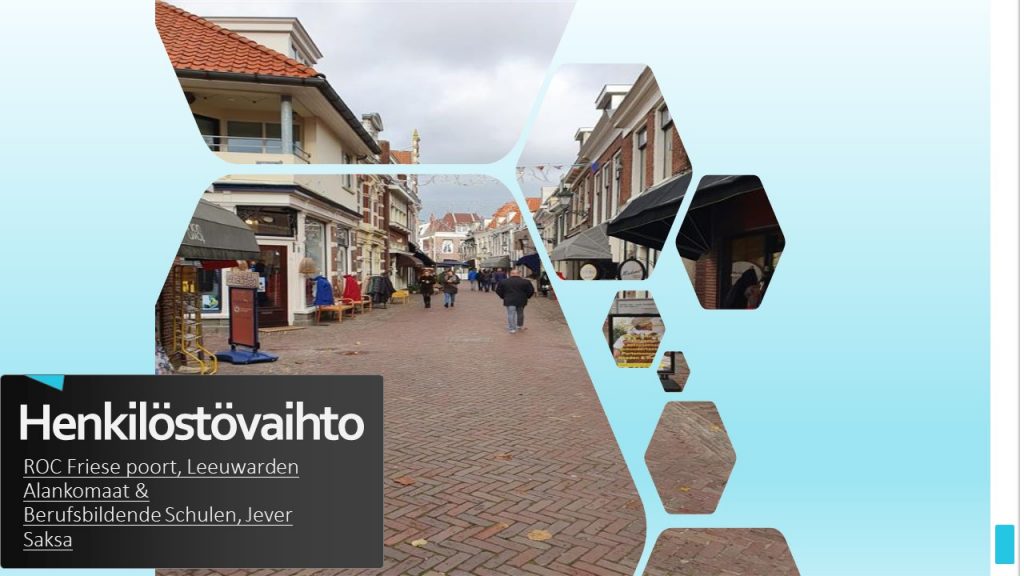
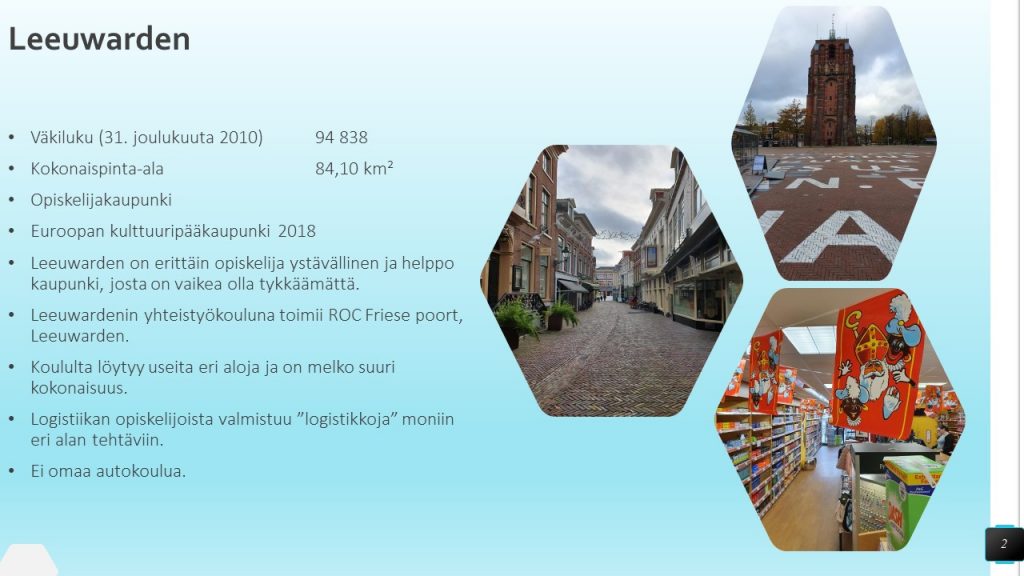
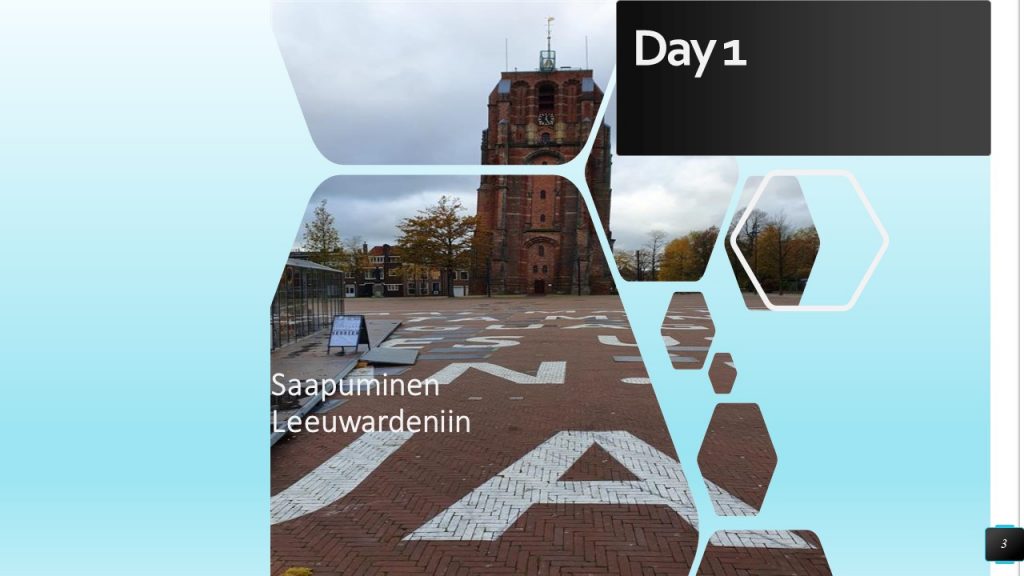
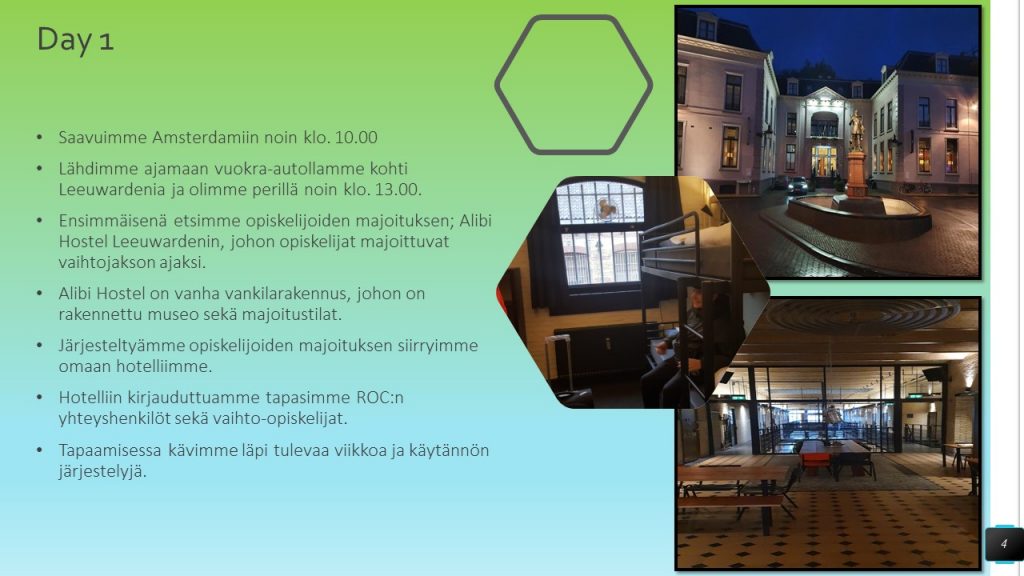
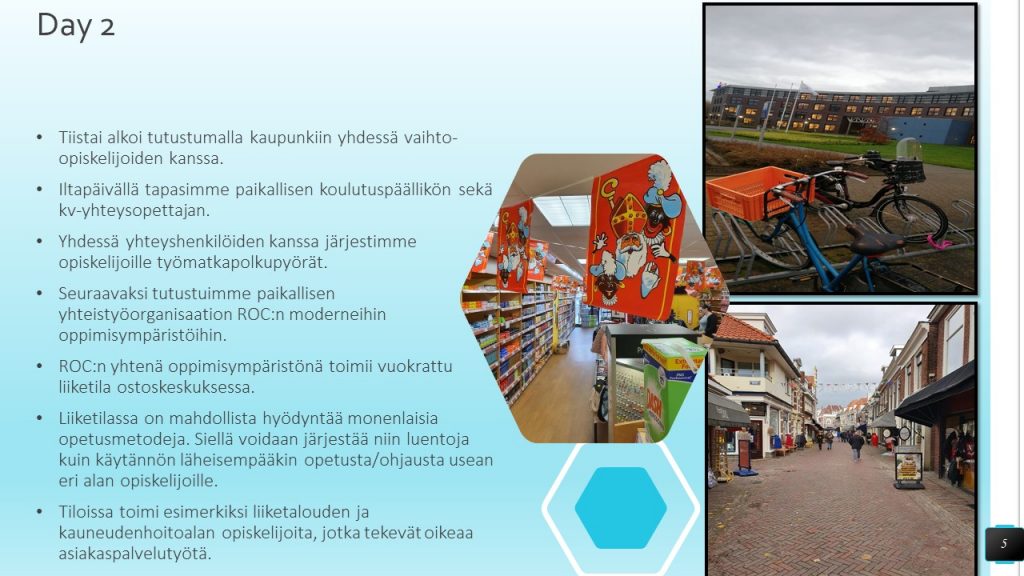
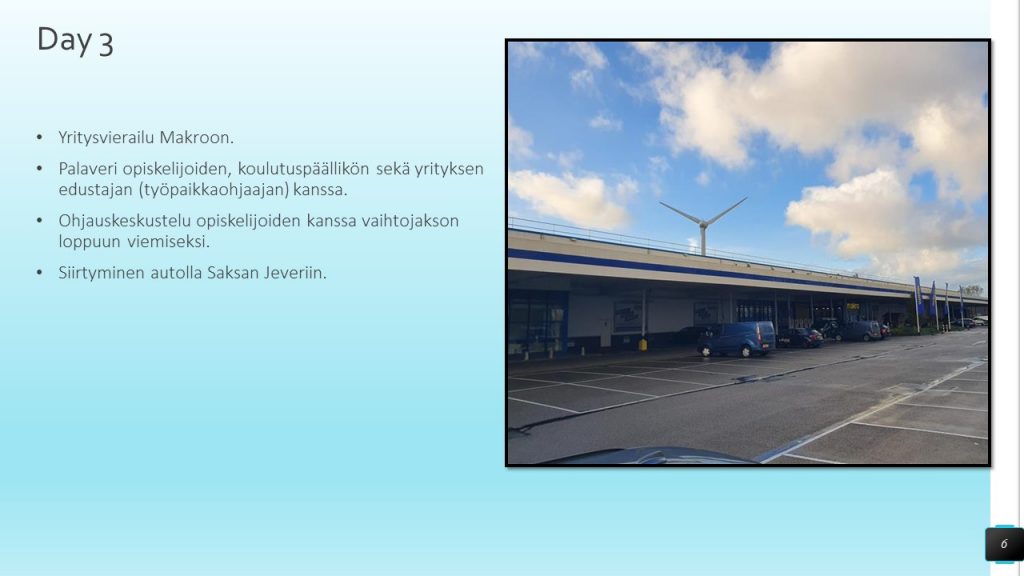
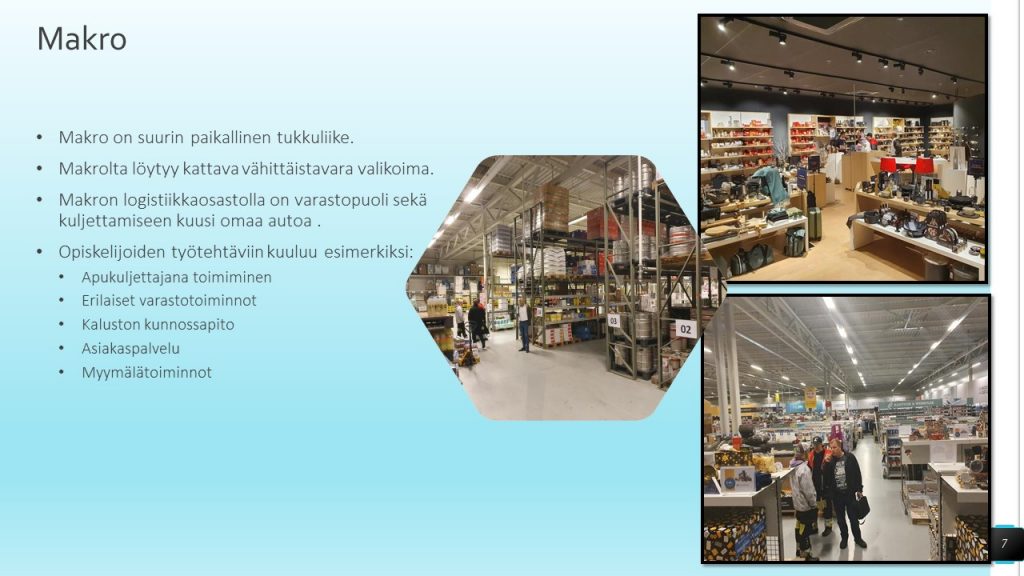
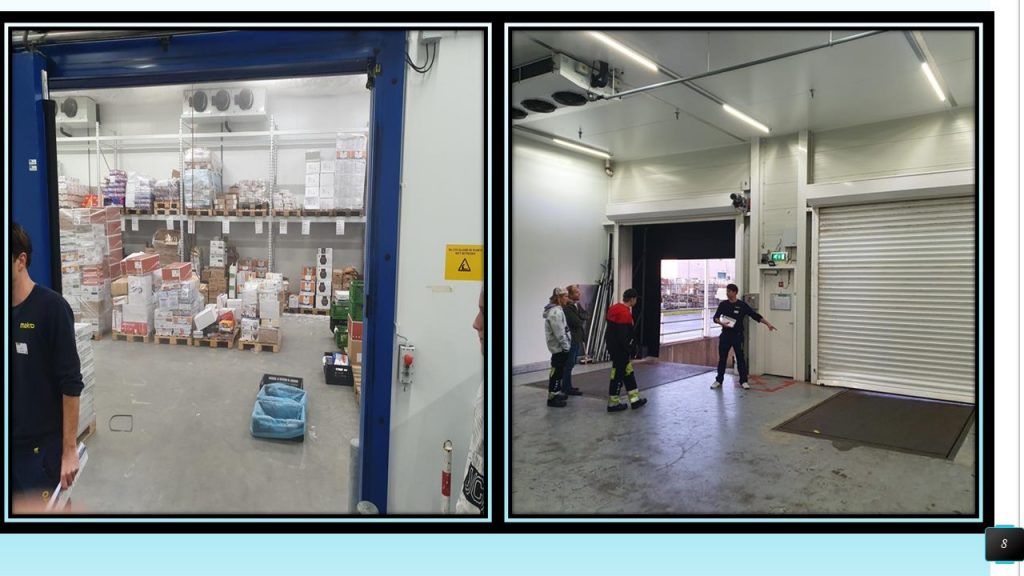
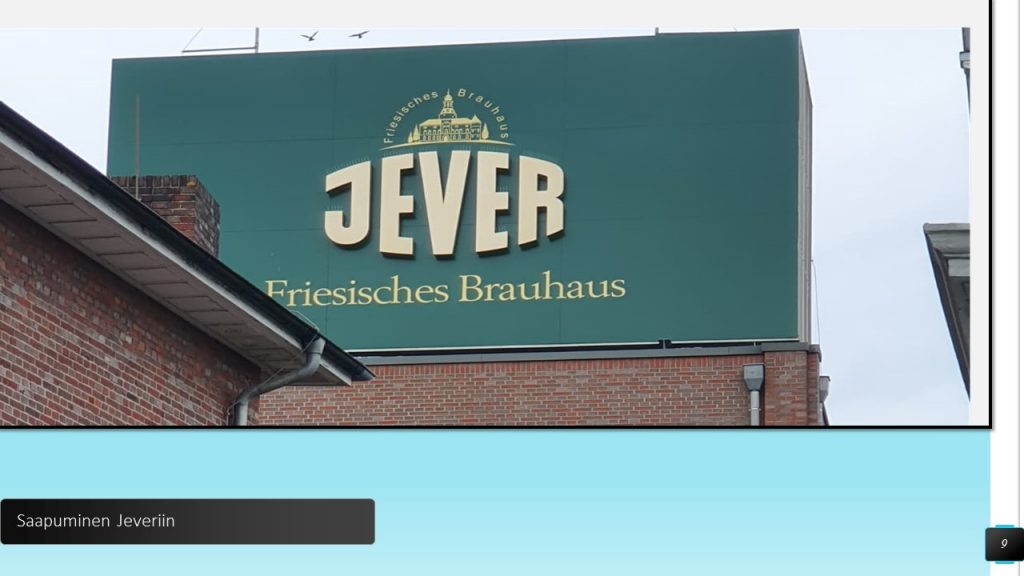
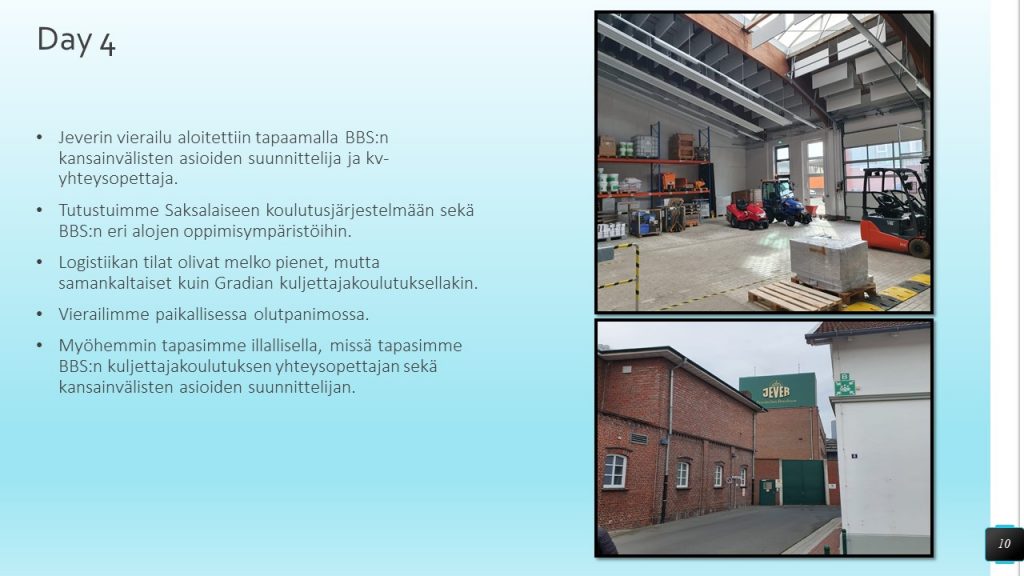
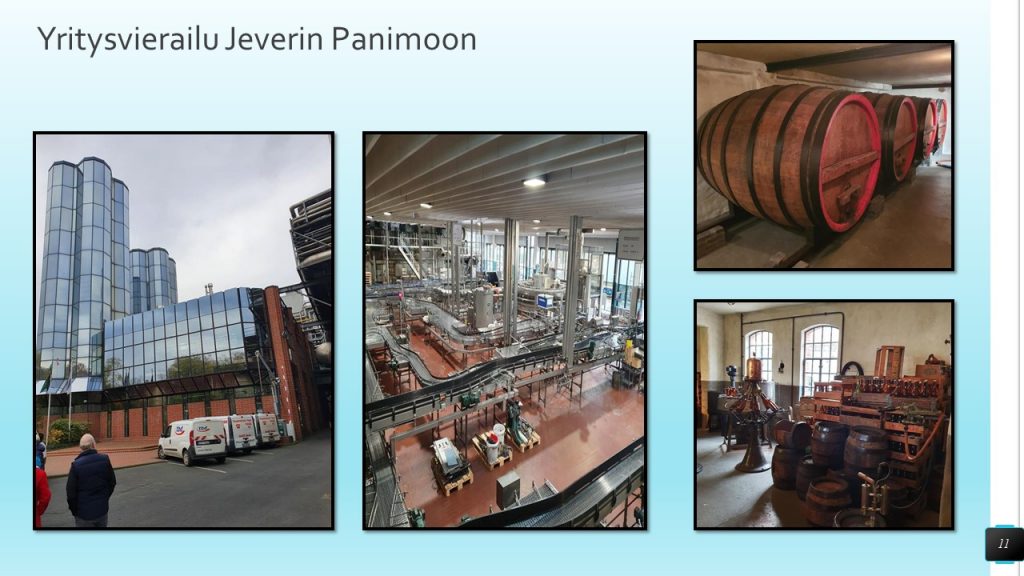
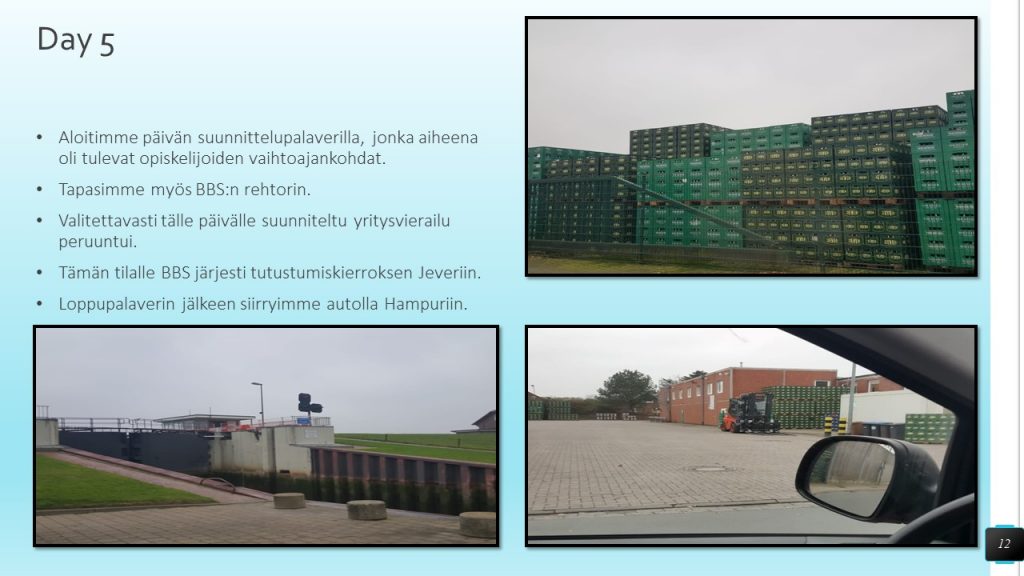
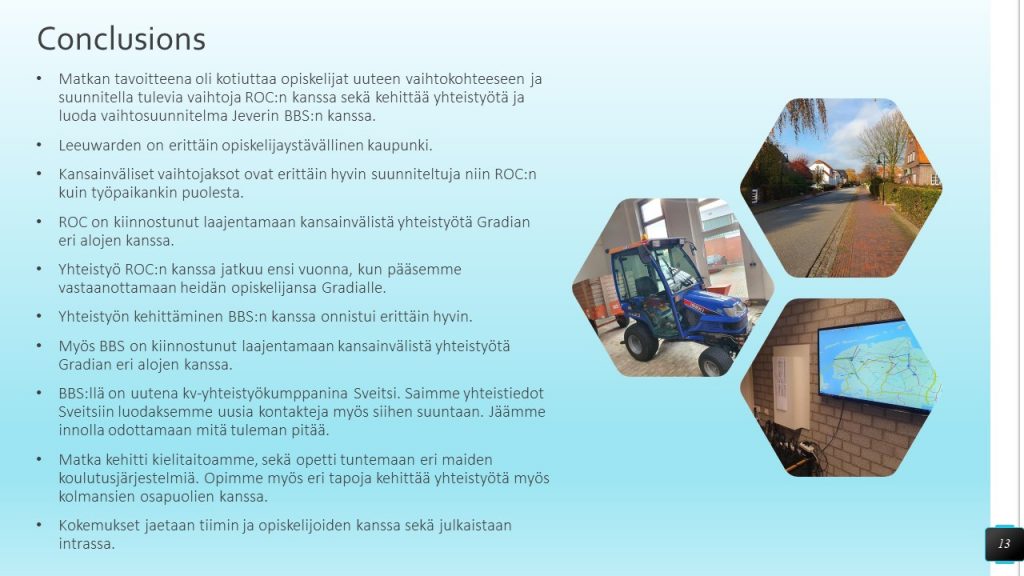
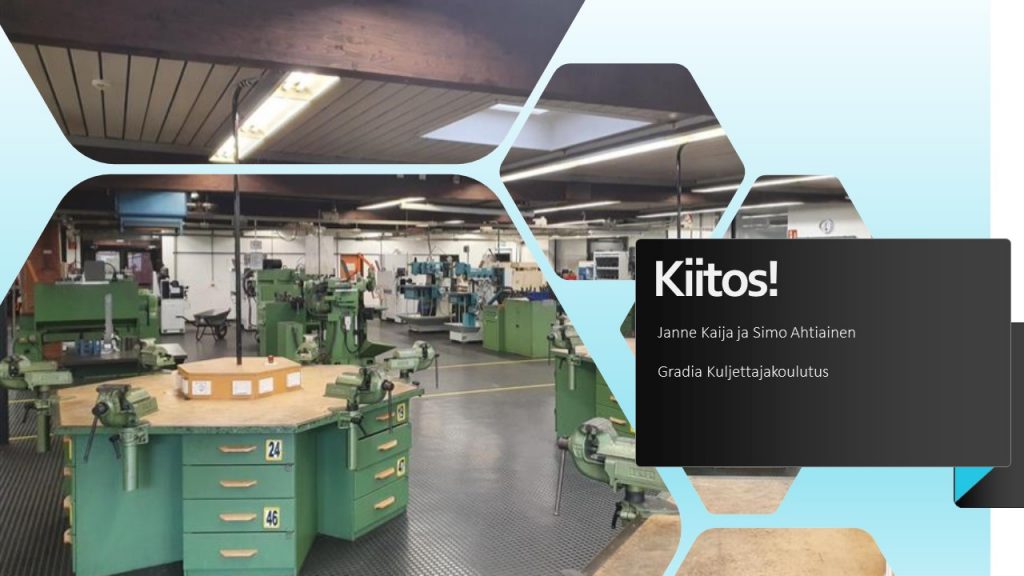
Logistiikka-alan opettajat Simo Ahtiainen ja Janne Kaija vierailivat 2019 puolella Gradian yhteistyöoppilaitoksissa ROC Friese poortissa ja BBS Jeverissä.














Gradia’s internationalisation strategy, EMEU network and EfVET, both of which Gradia is a member, provided the topics for the key note speeches at this years Swiss VET directors conference in Olten, Switzerland on 16 January 2020.
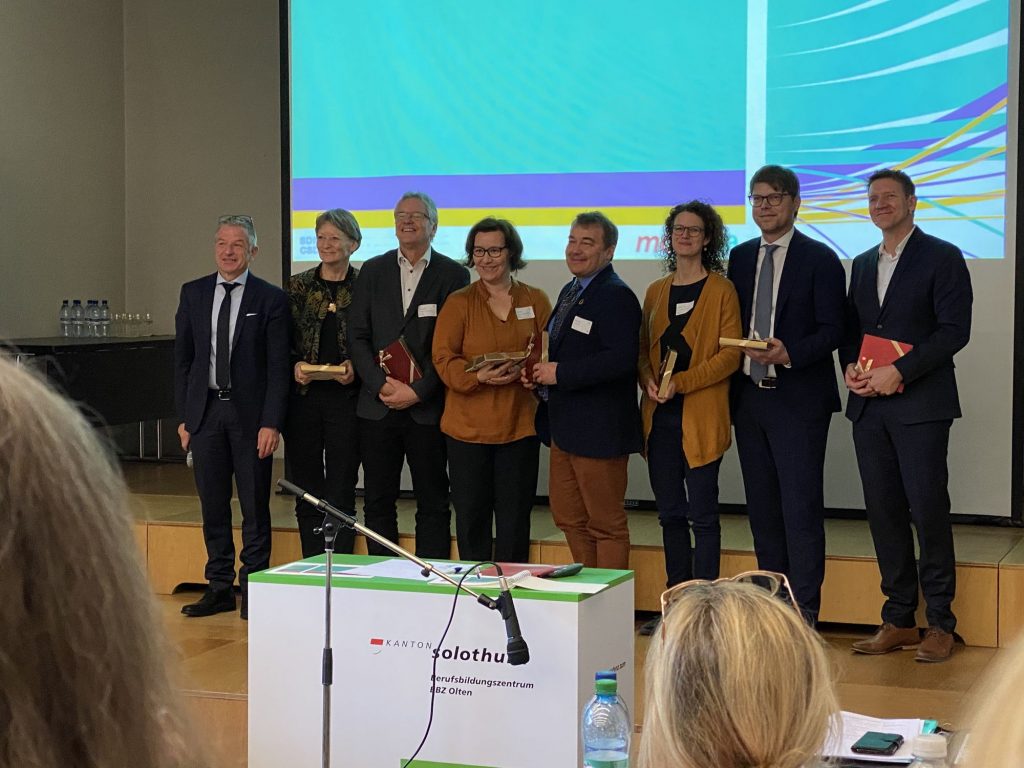
The forum of the Swiss directors focused on the promotion of exchange and mobility and the role that vocational schools can play. Statistics showed the actual situation regarding activities around exchange and mobility at vocational schools to be less than desired. This allowed for a provisional appraisal of implementation of the vision of the federal government and cantons: that vision is for all young people to have a mobility experience during their initial and continuing education and training. From 2014-2019, vocational schools belonging to the SCD submitted between 30 and 50 % of all applications per call. Movetia, the Swiss NA, constructed an outlook for the future with regard to national, European and international mobility and cooperation. The Swiss perspectives were broadened, additionally, by the inputs regarding mobility and cooperation activities of the international guests from Finland, the Netherlands and Italy.
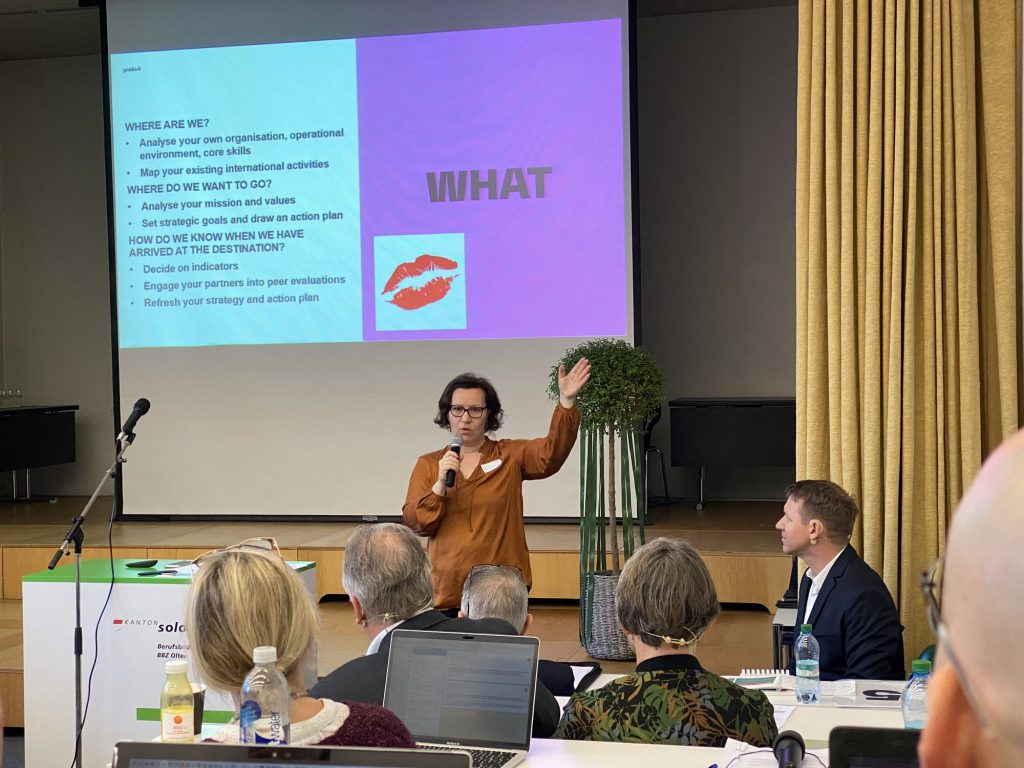
Gradia’s intervention dealt mainly with indicators for successful internationalisation strategies such as linking all activities to the general strategy and building strong, sustainable networks locally, regionally as well as on European and international level. In addition, a simple three-step process was suggested for all participating colleges for creating their own strategies for their own needs.


In addition to lively discussions and group work, Daniel Kehl, Director of GBS St. Gallen, one of the oldest partners of the predecessor to Gradia Jyväskylä, presented the ABC of internationalisation now available on the Movetia website:
https://www.sdk-csd.ch/de/abc-der-internationalisierung_0-244.html
Gradia had the pleasure of hosting staff from Lycee Nadar/ Academie Versailles at the end of January. We asked them some questions regarding their visit and the impressions they got.
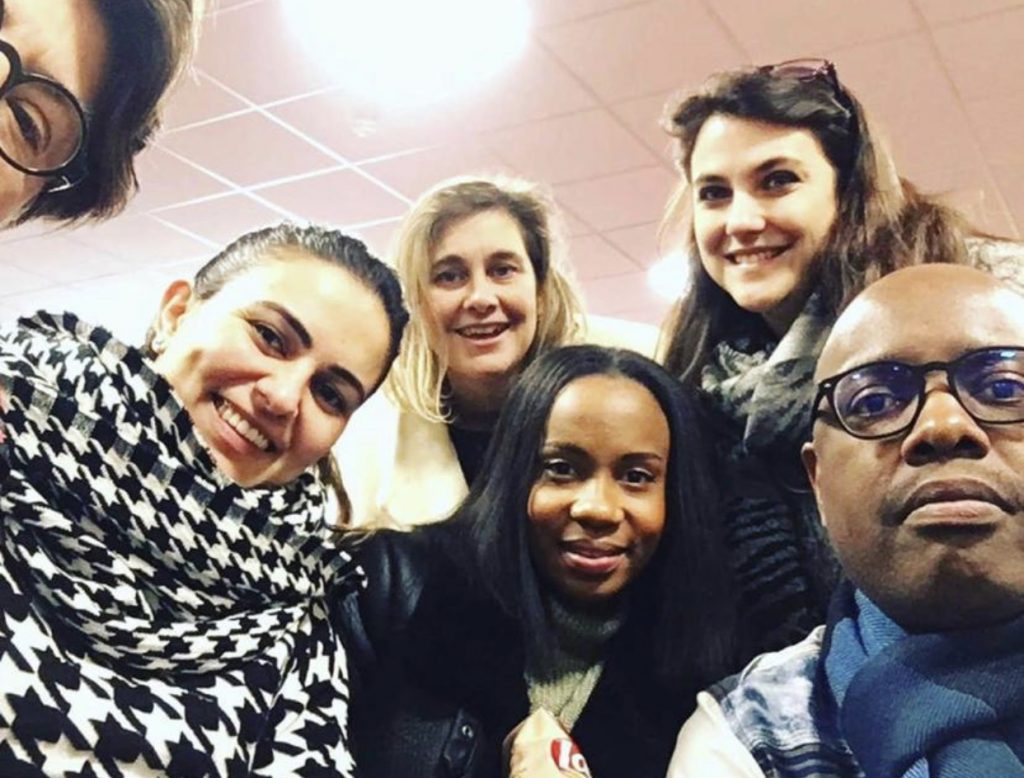
What did you find were the similaries/ differences in VET education in Finland and France? Did something surprise you?
It was a real pleasure to get to know Gradia and it was very enriching to talk with you about your school system.
The similarities with the Finnish system and the French system are few. In fact, in broad terms, we find (in common) the idea of learning a trade but the implementation is completely different. The state of mind is totally different. And we can imagine that the result is too.
There are several points which can be highlighted and which were quite surprising in relation to our system :
What would you like to take with you back to France? What would you like to happen next?
The previous list could be even longer. The Finnish system is really very interesting and a model of its kind. We could say that the French system, in itself, presents similarities but only when one begins the higher studies (studies after the baccalaureate). Which is a shame because many of our students stop school after the baccalaureate and do not pursue higher education and it would have been interesting to have given them all these skills before starting their professional life. Students who continue their studies would also be better prepared for the required academic level of higher education. Many drop out because they are still too academic. Let’s say it: the Finnish system is trying to make the child responsible and the French system is not.
We don’t feel it is really possible to change the French system because it depends on a lot of things. Many things would have to change at the top, namely the Ministry of Education and the French mentality. Meanwhile, we think it is still possible for the teachers to make a change and follow the path that is imposed on us, while at the same time conveying a pedagogy that will allow the student to have deep reflections on their future and their studies.
And finally, the visitors would like to thank everyone they met at Gradia for the warm welcome received. All interventions were very interesting and appreciated.
Kuvat ja teksti: Eevamari Auvinen ja Maria Linnavirta

Tutustuminen Bridgwater&Taunton Collegeen (www.BTC.ac.uk) Englannissa osoitti, että opiskelijoiden innostus uuden oppimiseen ja henkilökohtaiseen kasvuun on kaikkialla samanlaista. Yhdistävänä tekijänä oli myös oppilaitoksen henkilökunnan sitoutuminen omaan työhönsä ja organisaation kehittämiseen. Toiminta kolmella kampuksella toimi hyvin ja vakuutti luontevan yhteistyön sujuvuudesta.
Maria Linnavirta ja Eevamari Auvinen tekivät job shadowing -vierailun Somersetissa sijaitsevaan Bridgwater&Taunton Collegeen (BTC) syyskuussa. Maria tutustui lähemmin oppilaitoksen viestintään ja markkinointiin, Eevamari yksiköiden sihteerien tehtäväkenttään.
BTC:ssä on hiljattain tehty onnistunut iso organisaatiomuutos ja brändiuudistus. Bridgwaterin ja Tauntonin oppilaitokset ovat yhdistyneet yhdeksi suureksi, n. 22 000 opiskelijan oppilaitokseksi, joka tarjoaa laaja-alaisesti toisen asteen ammatillisia opintoja. Bridgwaterin ja Tauntonin lisäksi oppilaitoksella on toimipiste myös Canningtonissa. Kampukset sijaitsevat n. 10 – 15 km päästä toisistaan.
Toimipisteissä opetetaan osittain samoja ammatillisia aineita, mutta jokaiselta kampukselta löytyy myös omat erityispiirteensä. Bridgwaterin kampuksella on hallinnollisen yksikön lisäksi mm. Energy Skills Centre, 350-paikkainen The McMillan Theatre, Hair & Beauty Zone, Automotive Centre, jossa toimii ympäri Englantia kilpaileva motorsport-tiimi sekä The Childcare Centre 6 kk – 4-vuotiaille. Tauntonissa samalla kampuksella puolestaan toimii myös Somersetin yliopisto. Lisäksi heiltä löytyy The Arts House, Mama Bear’s Nursery, Hair & Beauty Agency ja konferenssikeskus. Luonnonläheinen Canningtonin kampus taas on keskittynyt luonnonvara-alaan, maanrakennukseen ja ydinvoimalatuotantoon. Heillä on Rodway Farm (tuotantoeläimet), Animal Management Centre (pieneläimet), Equestrian Centre (hevostalous), Golf Club, puutarha, Agriculture Innovation Centre, Construction, Skills & Innovation Centre (CSIS), National College for Nuclear sekä asuntola.




Oppilaitoksessa oli syyskuun alussa hyvä tekemisen meininki, kun uudet ja entiset opiskelijat olivat saapuneet. Perinteikkään englantilaisen koulujärjestelmän mukaan opiskelijat aloittavat opintonsa kerran vuodessa, joten suomalainen malli jatkuvasta hausta herätti ihmetystä. Eri alojen moninaisuus ja erilaiset oppimisympäristöt puolestaan yllättivät meidät. Oppilaitoksessa pystyi päivän aikana tutustumaan niin kaneihin, ralliautoihin, teatterimaskeihin, lentokoneisiin, golfkenttään kuin ydinvoimalaympäristöönkin.
Marialla oli etukäteen mietittynä pitkä lista markkinoinnin ja viestinnän asioita, joihin hän halusi tutustua. Erityisesti kiinnosti oppilaitosten brändi ja sen kehittäminen vastaavanlaisessa tilanteessa kuin mitä Gradialla on muutaman vuoden aikana ollut. Muita kiinnostuksen kohteita olivat mm. sähköisen markkinoinnin toteutukset, verkkosivut, opiskelijahankinta ja -palvelut, eLearning-toteutusmalli, tapahtumien ja kampanjoiden järjestäminen sekä sisäinen ja ulkoinen viestintä. Näistä Maria saikin kollegoiltaan kattavat selvitykset, mutta yhtä lailla pystyi jakamaan kokemuksia vastaavasta toiminnasta Gradialla. Ajatuksia herätti tiedonkeruu, opiskelijatarinat, monipuoliset markkinoinnin välineet ja mittarit sekä brändin lanseeraamisesta ja kehittämisestä käydyt keskustelut.
Eevamari tapasi asiantuntevia ja työstään motivoituneita sihteereitä ja sai heiltä paljon vertaistukea. Oli hyvä huomata, että assistentin työnkuva ja arki on samanlaista maasta riippumatta. Työmenetelmät ja -tehtävät olivat samanlaisia, samoin kokemukset työn haasteista ja ilonaiheista. Kiire, epäselvä viestintä ja asioiden jatkuva muutos aiheuttavat paineita, kun taas sisältöä ja intoa tuovat mm. onnistumiset työtehtävissä sekä sujuva yhteistyö esimiehen ja muiden työkavereiden kanssa. Tärkeimpänä huomiona keskusteluissa nousi esiin innostava ja jatkuvasti kehittyvä työympäristö, jonka tekee eläväksi erilaiset opiskelijat. Opiskelijoiden työn touhuun ja tekemiseen pääsimmekin tutustumaan kampuskierroksilla.
Toisten työhön perehtyminen havahdutti huomaamaan myös omassa työssä kehittämisen kohteita. Konkreettisena tuomisena tulikin kipinä mm. hyödyntää entistä enemmän digitaalisia välineitä ja sovelluksia (esim. vuosikello) ja siten joustavoittaa arkea sekä jäsentää tulevia työtehtäviä entistä ennakoidummin. Lisäksi tutustumiskäyntimme innosti vastavierailuun; ryhmä BTC:n työntekijöitä tulee tutustumaan Gradiaan ja Taitaja2020-tapahtumaan ensi toukokuussa. Tällöin pääsemme syventämään yhteistyötä ja jatkamaan keskustelua hyvistä käytänteistä puolin ja toisin.
Vierailun aikana saatuja kokemuksia on hyvä jakaa omille tiimiläisille esimerkkinä vastaavanlaisten oppilaitosten toiminnasta kansainvälisellä tasolla. Näkökulmien laajentaminen Suomen rajojen ulkopuolelle toi aivan uudenlaisia ajatuksia oman toiminnan kehittämiseen. Oli hienoa havaita, että omien kokemuksien jakaminen hyödyttää myös vastaanottavaa oppilaitosta. Tapaamamme kollegat kertoivat, että kovan kilpailun vuoksi heillä ei ole ollut mahdollisuutta vaihtaa kokemuksia alueen muiden oppilaitosten kanssa.
Job shadowing -matkan tavoitteena oli ennen kaikkea vahvistaa omaa ammatillista osaamista, omaksua uusia hyviä käytänteitä ja laajentaa näkökulmia oman työn tekemiseen. Nämä kaikki tavoitteet saavutettiin ja lisäksi meihinkin tarttui tekemisen ilo ja innostus. Oppiminen ja kehittäminen sekä sitoutuminen niin työhön kuin opiskeluun välittyi oppilaitoksesta selkeästi. Tuli vahva tunne siitä, että myös meillä Gradiassa on päästy pitkälle asioiden eteenpäin viemisessä ja uudistamisessa ja että olemme tekemässä juuri oikeita asioita oikeille ihmisille.
Lisätietoja henkilöstövaihdoista: Rea Tuominen, kv-suunnittelija
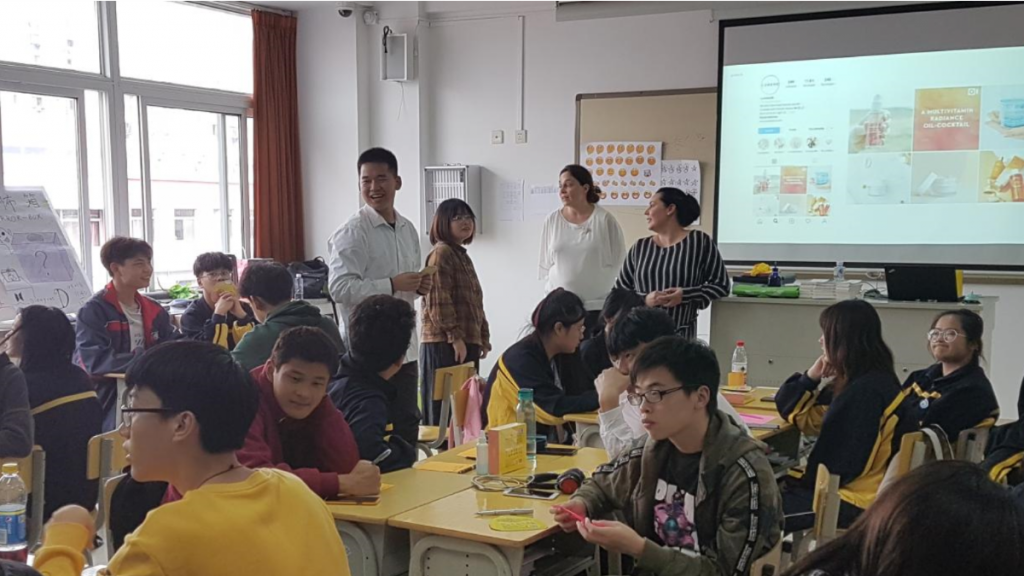
Gradia has launched two diploma programs with new Chinese partners during autumn 2019. Programs are joint efforts with EduCluster Finland.
At Shanghai Modern Circulation School, 35 third-year business students aged 18-19, began studies in marketing communication and content production in October 2019 in accordance to the Finnish Vocational Qualification in Business. The program highlights entrepreneurship as a method in learning new skills and competences and gives a chance to complete one accredited Finnish module in business.
As a part of the program, students establish so-called mini-companies and learn the required competences by running those companies. Entrepreneurship is an efficient learning method. In addition to acquiring competence specific to business, students learn so-called 21st century skills like problem-solving, collaboration, communication.
The program is run by two Gradia experts, Ms Johanna Ärling and Ms Elina Maukonen, both working as business teachers at Gradia. They shared their observations and experiences just after their first two-week session in China.
Johanna tells that the training program is based on teamwork and hands-on exercises.
“Students really like the idea of learning by doing and having less traditional theory lectures. In our program, they have a permission to make mistakes and to learn from them. They appreciate the possibility of working in teams and sharing and testing their own ideas with working life representatives.”
Johanna and Elina have paid attention to the differences in Finnish and Chinese VET systems. In China the system is teacher-centered whereas in Finland we emphasis student-centeredness.” Teachers are running the classes in a traditional way and students are less active during the classes than in Finland.”
The Finnish pedagogy challenges the Chinese students to learn differently “They need to be active all the time, figuring out the answers and ideas by themselves,” says Elina. “Naturally a different learning and teaching culture challenges us Finnish teachers but once students get used to collaborative, hands-on learning methods, the results are very good,” adds Johanna who is experienced in running training programs in China.
Although there are some differences, there are lot of similarities as well. “Both in Finland and China we all want our students to have a good chance to find a job after the graduation,” says Johanna.
According to Johanna and Elina, Finnish VET qualifications are well applicable for the Chinese market. Finnish qualifications are competence-based and the competences are not dependent on national boundaries. “But since Chinese are not familiar with competence-based structured qualifications we need to explain the system and contents carefully and make them easy to understand.”
Johanna and Elina say that they have learnt a lot by working as an expert overseas. “We have learnt e.g. about the Chinese business life, education and culture. But certainly, to match training with local needs, more information is still needed. More information and experiences we have the better programs we are able to provide.”
Development of school-company collaboration is one of the national priorities in Chinese vocational education and training. Cooperation is essential in increasing the quality and attractiveness of vocational education. Finland as a forerunner in developing different kind of work-based learning models has lot to share. Therefore, Gradia has developed the teacher training program called Skills Broker to improve the match between training provision and the needs of the industry. The first Skills Broker Teacher training program was successfully piloted in China in 2018-2019.
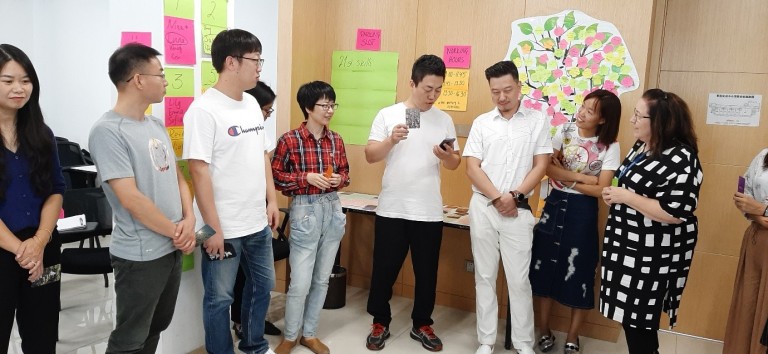
In September 2019, Gradia launched Skills Broker program for 30 teachers from Changzhou Technical Institute of Tourism and Commerce. Teachers are developing cooperation with local enterprises using the methodology of service design. The program has been aligned with a service design module from the Finnish Specialist Qualification in Product Development. Teachers who pass the program successfully will get an accredited Finnish diploma of completing part of the qualification. The program consists of intensive weeks in Changzhou, distance learning (team and development work) and competence assessment.
Ms Maritta Kinnunen, working as a lead expert in Skills Broker program shares the experiences of Johanna and Elina. “In China it seems that the education is more teacher-centered than in Finland – whereas we have an emphasis on student-centered learning and teaching. This means that the teachers in Skills Broker program are not only getting tools to develop school-company collaboration but also tools for promoting student-centered methods in their own teaching.”
More information Kirsi Koivunen (at)gradia.fi